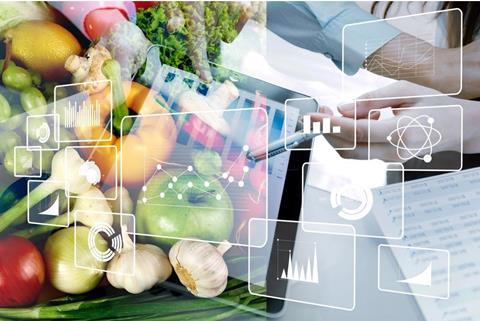Michael Ukwuru reveals the many ways in which artificial intelligence could address global food safety challenges.
In recent years, the integration of artificial intelligence (AI) has emerged as a promising approach to addressing global food safety challenges.
AI technologies, such as machine learning and data analytics, offer powerful tools for detecting contaminants, ensuring product quality, enhancing traceability, and mitigating risks throughout the food supply chain.

By leveraging the vast amounts of data generated in the food industry, AI algorithms can analyse patterns, detect anomalies, and make predictions, enabling proactive measures to protect public health and ensure the safety of the food we consume.
AI in food safety encompasses various applications that revolutionize traditional practices. Early detection of contaminants, such as foodborne pathogens or chemical residues, becomes more efficient through AI-powered systems that analyse diverse data sources, including sensor networks, quality control records, and surveillance data. These algorithms can identify potential risks before they escalate, facilitating timely interventions and preventing contaminated products from reaching consumers.
Quality control
Moreover, AI technologies enhance quality control and inspection processes by utilizing machine vision systems and IoT devices. These systems can detect visual defects, monitor critical parameters like temperature and humidity, and ensure optimal storage conditions, reducing the risk of spoilage and enhancing overall product quality.
AI also plays a vital role in traceability and supply chain management. By leveraging technologies like blockchain, AI algorithms can track and record the movement of food products from farm to fork, ensuring transparency and accountability. This improves traceability, simplifies product recalls, and enables swift identification of contamination sources during foodborne illness outbreaks, ultimately safeguarding public health.
Predictive analytics powered by AI algorithms help in risk assessment by analysing large volumes of data, including historical food safety records and emerging trends. These analytics enable stakeholders to proactively allocate resources, implement preventive measures, and mitigate potential risks before they manifest as widespread food safety issues.
Virtual assistants
Furthermore, AI contributes to consumer awareness and education through platforms that provide accessible information about food safety practices, allergens, and product recalls. Chatbots and virtual assistants assist consumers in making informed choices and offer personalized advice on safe food handling and preparation, thereby reducing the incidence of foodborne illnesses.
AI can facilitate the integration and analysis of diverse data sources related to food safety, including laboratory test results, epidemiological data, and consumer complaints. By aggregating and analysing this data, AI algorithms can identify patterns, correlations, and emerging risks, enabling stakeholders to implement targeted interventions and allocate resources more effectively.
AI can help in detecting food fraud, including mislabelling, adulteration, and counterfeit products. By analysing data from multiple sources, such as supply chain records, product labelling, and ingredient information, AI algorithms can identify anomalies and patterns indicative of fraudulent practices. This assists regulatory agencies and industry stakeholders in maintaining the integrity and authenticity of food products.
Collaboration needed
However, it is important to note that the successful adaptation of AI to global food safety challenges requires collaboration among researchers, industry stakeholders, and regulatory agencies. Data sharing, standardization, and privacy considerations must be addressed to ensure the effective and responsible implementation of AI technologies in the food safety domain.
In conclusion, the integration of AI in food safety brings about transformative advancements in detecting contaminants, ensuring product quality, enhancing traceability, and mitigating risks in the food supply chain. By harnessing the power of AI algorithms and data analytics, stakeholders in the food industry can proactively safeguard public health, optimize resource allocation, and build consumer trust in the safety and integrity of the food they consume.
Michael Ukwuru is the Head of Department of Food Science and Technology, The Federal Polytechnic, Idah, Kogi State, Nigeria and a member of AMI’s Food Security Scientific Advisory Group.









No comments yet